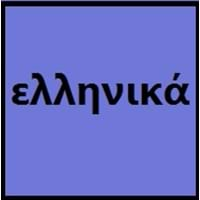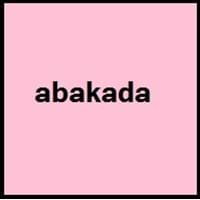Countries
Cyprus, European Union, Greece
Philippines
National Language
Albania, Cyprus, Egypt, France, Greece, Italy, Romania, Turkey, Ukraine
Philippines
Second Language
Roman Empire
Filipinos
Speaking Continents
Asia, Europe
Asia, Australia
Minority Language
Albania, Armenia, Australia, Hungary, Italy, Romania, Turkey, Ukraine
Australia, Canada, Guam, Hong Kong, New Zealand, Singapore, United Kingdom
Regulated By
Center for the Greek language (Κέντρον Ελληνικής Γλώσσας)
Komisyon sa Wikang Filipino, National Languages Committee
Interesting Facts
- Greek is the longest documented language of all the Indo-European Langauges.
- The official language of education in the Roman Empire was Greek.
- In 1593, "Doctrina Christiana" was first book written in two versions of Tagalog.
- The name "Tagalog" means "native to" and "river". "Tagalog"is derived from taga ilog, which means "inhabitants of the river".
Similar To
Armenian
Filipino, Cebuano and Spanish Languages
Derived From
Latin
Not Available
Alphabets in
Greek-Alphabets.jpg#200
Tagalog-Alphabets.jpg#200
Scripts
Arabic, Latin
Baybayin
Writing Direction
Left-To-Right, Horizontal
Left-To-Right, Horizontal
Hello
γεια σας (geia sas)
Kamusta
Thank You
ευχαριστώ (ef̱charistó̱)
Salamat po
How Are You?
πώς είσαι (pó̱s eísai)
Kamusta ka na?
Good Night
Καληνυχτα (Kali̱nychta)
Magandang gabi
Good Evening
καλησπέρα (kali̱spéra)
Magandang gabi po
Good Afternoon
Καλὸ ἀπόγευμα (Kaló apóyevma)
Magandang hapon po
Good Morning
καλημέρα (kali̱méra)
Magandang umaga po
Please
παρακαλώ (parakaló̱)
pakiusap
Sorry
συγνώμη (sygnó̱mi̱)
pinagsisisihan
I Love You
Σε αγαπώ (Se agapó̱)
Iniibig kita
Excuse Me
Με συγχωρείτε! (Me synhoríte)
Ipagpaumanhin ninyo ako
Dialect 1
Cappadocian Greek
Batangas Tagalog
Where They Speak
Greece
Batangas, Gabon
How Many People Speak
Not Available
Where They Speak
Italy
Philippines
How Many People Speak
Not Available
Dialect 3
Mariupol
Filipino
Where They Speak
Ukraine
Philippines
How Many People Speak
Not Available
Second Language Speakers
Not Available
Native Name
ελληνικά
Tagalog
Alternative Names
Ellinika, Graecae, Grec, Greco, Neo-Hellenic, Romaic
Filipino, Pilipino
French Name
grec moderne (après 1453)
tagalog
German Name
Neugriechisch
Tagalog
Pronunciation
[eliniˈka]
[tɐˈɡaːloɡ]
Ethnicity
Greeks or Hellenes
Tagalog people
Language Family
Indo-European Family
Austronesian Family
Subgroup
Hellenic
Indonesian
Branch
Not Available
Not Available
Early Forms
Proto-Greek, Mycenaean Greek, Ancient Greek, Koine Greek and Medieval Greek
Proto-Philippine, Old Tagalog, Classical Tagalog, Tagalog
Standard Forms
Modern Greek
Filipino
Signed Forms
Greek Sign Language
Not Available
Scope
Individual
Individual
ISO 639 6
ells
Not Available
Glottocode
gree1276
taga1269
Linguasphere
56-AAA-a
31-CKA
Language Type
Living
Living
Language Linguistic Typology
Subject-Verb-Object
Object-Verb-Subject, Subject-Verb-Object, Verb-Object-Subject, Verb-Subject-Object
Language Morphological Typology
Fusional, Synthetic
Not Available
All Greek and Tagalog Dialects
Most languages have dialects where each dialect differ from other dialect with respect to grammar and vocabulary. Here you will get to know all Greek and Tagalog dialects. Various dialects of Greek and Tagalog language differ in their pronunciations and words. Dialects of Greek are spoken in different Greek Speaking Countries whereas Tagalog Dialects are spoken in different Tagalog speaking countries. Also the number of people speaking Greek vs Tagalog Dialects varies from few thousands to many millions. Some of the Greek dialects include: Cappadocian Greek, Griko. Tagalog dialects include: Batangas Tagalog , Bisalog. Also learn about dialects in South American Languages and North American Languages.
Greek and Tagalog Speaking population
Greek and Tagalog speaking population is one of the factors based on which Greek and Tagalog languages can be compared. The total count of Greek and Tagalog Speaking population in percentage is also given. The percentage of people speaking Greek language is 0.18 % whereas the percentage of people speaking Tagalog language is 0.42 %. When we compare the speaking population of any two languages we get to know which of two languages is more popular. Find more details about how many people speak Greek and Tagalog on Greek vs Tagalog where you will get native speakers, speaking population in percentage and native names.
Greek and Tagalog Language Codes
Greek and Tagalog language codes are used in those applications where using language names are tedious. Greek and Tagalog Language Codes include all the international language codes, glottocodes and linguasphere.





